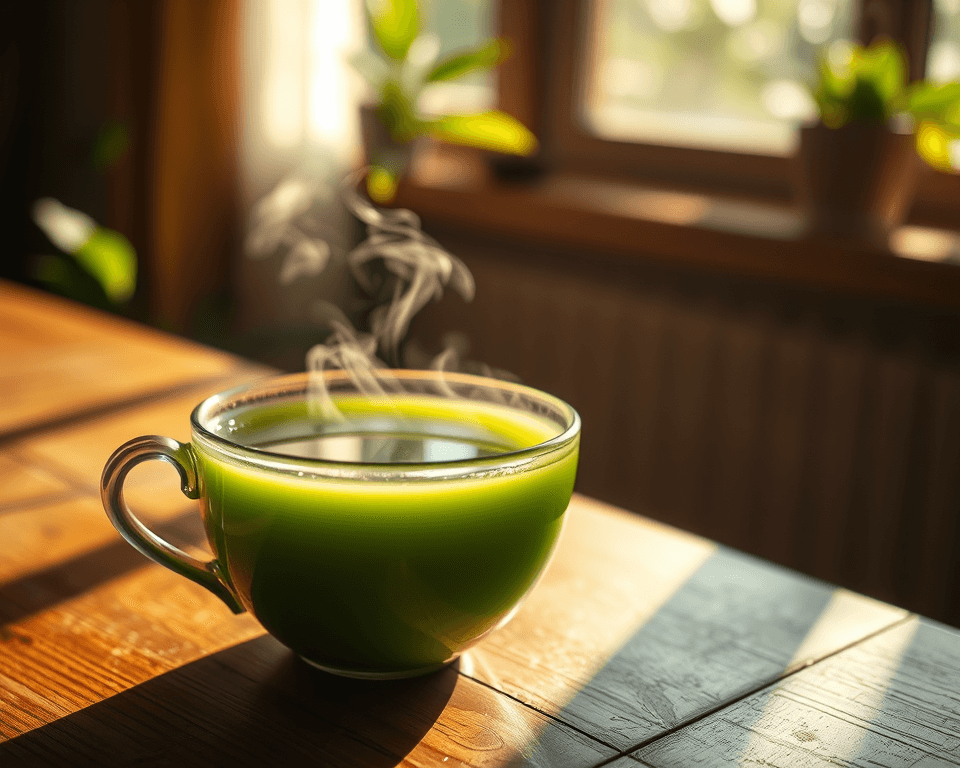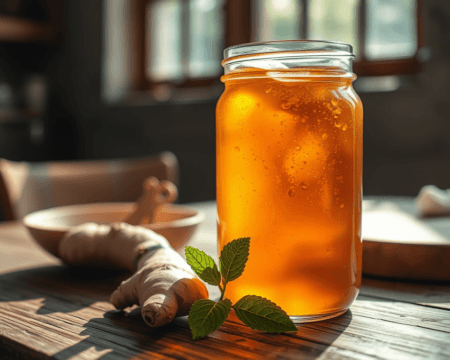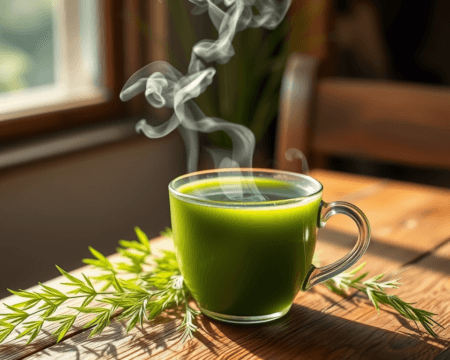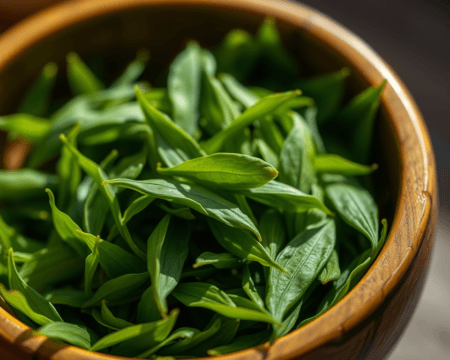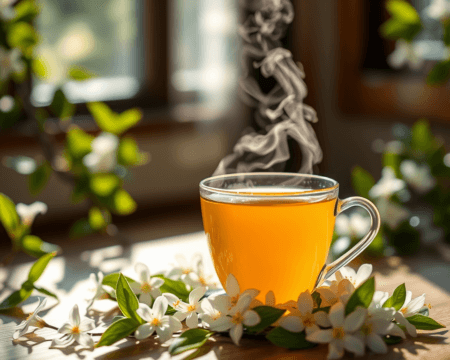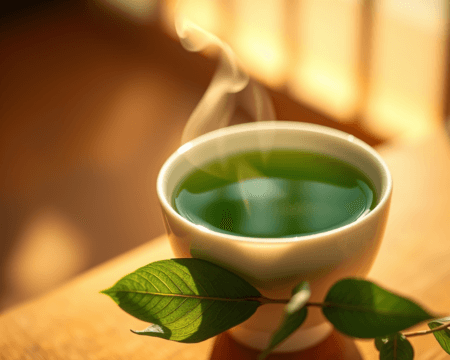Tea is more than just a drink; it’s a ritual, an experience, and for many, a lifeline to a healthier lifestyle. But here’s the kicker—have you ever thought about the actual caloric content in your favorite brew? You might be surprised by what you discover.
With such a variety of teas on the market, from traditional black tea to trendy green and aromatic herbal options, understanding their caloric breakdown can make all the difference in your consumption habits. So, grab your favorite mug and let’s get into the nitty-gritty of tea calories, and trust me, you’re gonna want to note this down.
Key Takeaways
- Different types of tea have varying caloric values—some are practically calorie-free!
- Additives like sugar and milk can significantly boost the calorie count, so choose wisely.
- The brewing method you use can affect both flavor and nutrition—make it count!
The Caloric Breakdown of Different Types of Tea
Black Tea
When it comes to black tea, we’re talking about a classic that packs a punch. Brewed black tea—especially if you’re going the loose leaf route—has a caloric value that’s almost negligible. A standard cup of hot black tea typically has about 2 calories if you’re sipping it unsweetened. This makes it a great option for anyone looking to cut back on caloric intake.
But don’t just stop at the calories. The caffeine levels in brewed black tea can range anywhere from about 40 to 70 mg per cup, giving you that boost you might need during your afternoon slump. Whether you steep it for the traditional 3 to 5 minutes or push it longer for a more robust flavor, the calorie content essentially stays the same. Just remember—adding sweeteners will throw those numbers up like a party balloon.
Green Tea
Now let’s jump to green tea, which is often heralded as a health super-soldier. When brewed correctly, especially with Japanese green tea varieties like Sencha or Matcha, you’re looking at a low-calorie powerhouse. A standard cup of brewed green tea will typically run you about 2 calories as well, similar to black tea.
But here’s where it gets interesting. Green tea isn’t just a drink; it’s loaded with antioxidants that are fantastic for your metabolism. You might want to check out Matcha specifically, which is a concentrated form of green tea that could have amazing benefits for your overall health—think of it as a nutrient profile that packs a punch. Plus, it’s rich in catechins, which might help with weight management. Talk about a win-win!
Herbal Tea
Let’s not forget herbal tea, which takes the stage as a caffeine-free alternative that can be both enriching and delicious. Most herbal blends—like chamomile, peppermint, or rooibos tea—are actually considered to be calorie-free. Yup, you heard that right. Infuse those beautiful herbs for a few minutes and you’re set.
However, some herbal teas can come with calorie-rich herbs mixed in. Be cautious with what you’re choosing; while pure chamomile is essentially free of calories, some blended teas can sneak in a few. Always check the label if you’re counting every calorie.
Nutritional Information Related to Tea Consumption
Vitamins and Minerals in Tea
You gotta recognize that tea isn’t just about sipping and savoring; it also packs some essential nutrients! Tea composition includes various beneficial compounds such as antioxidants and even some trace minerals. You might find things like potassium, magnesium, and a sprinkle of vitamins A, C, and E hanging out in there.
These compounds don’t just enhance flavor; they deliver health benefits that are nothing short of amazing. For example, the antioxidants in tea may help in reducing oxidative stress in the body. This means your cozy cup of tea not only quenches your thirst but also boosts your body’s defenses.
Health Benefits of Low-Calorie Tea Options
Concerned about weight management? Let’s hear it for low-cal tea options that double as healthful beverages! Drinking teas that are essentially calorie-free can help with hydration and keep your metabolism chugging along nicely. Ever heard of tea extracts? They are the superhero sidekicks of the beverage world and can even aid in weight loss endeavors.
Switching to calorie-free options can be game-changers for anyone dedicated to a healthier lifestyle. If you’re on the search for nutrient-dense tea, look out for herbal combinations or high-antioxidant teas—they can really amp up the health benefits.
Comparison of Tea with Other Common Beverages
Caloric Comparison with Coffee and Soft Drinks
Let’s break it down. If you’re sipping on coffee, depending on how it’s prepared, you’re looking at around 2 to 5 calories for black coffee, which is comparable to tea. Now, when you throw in some cream or sugar, those numbers skyrocket. On the flip side, a regular can of soft drinks can nail you with an ungodly 150 calories or more per serving.
So, which drink wins? Well, if you’re after low-calorie thirst quenching, tea takes the cake.
Impact of Additives (Milk, Sugar, etc.)
Here’s where you can either win or lose big. Got a sweet tooth? That sugar you add can shoot your tea’s calorie content through the roof. Let’s say you add a tablespoon of sugar—hello, that’s roughly 16 calories right there. And if you’re a fan of milk in your tea, depending on if you’re using whole, skim, or something alternative, that’s another set of calories to consider.
For instance, adding 2% milk can add about 20 calories to your cup. If you’re serious about keeping the calorie count low, consider using non-dairy milk options that have lower calorie content or steering clear of the sweet stuff altogether.
Effects of Brewing Methods on Caloric Content
Different Brewing Techniques
Okay, this is where some tea-drinkers might start to squirm. The brewing method you choose matters. Cold brew tea? That can actually create a different flavor profile with subtle sweetness, while hot brewing can extract more severe flavors and antioxidants but doesn’t significantly change the caloric content.
Whether you’re using a strainer or going the tea bags route, remember that the longer you steep, the more flavor you extract. In short, brewing methods don’t impact the calorie count of plain tea but can change the taste significantly.
How Preparation Influences Nutritional Profile
Let’s consider how you prep your tea. Using the right preparation techniques preserves important nutrients. Oversteeping your green tea could lead to releases of bitter compounds, reducing the overall pleasant experience, while proper steeping enhances flavor depth and keeps those beneficial properties intact.
Nutritional retention is vital. The faster you get your tea out of that hot water, the better it keeps its good stuff. If you’re serious about drinking tea for its health benefits, consider experimenting with different brewing times and temperatures to find that sweet spot for both flavor and nutrients.
Myths and Facts About Tea and Calories
Debunking Common Misconceptions
Let’s bust a few myths. One popular misconception is that all tea is on the same level in terms of calories. That’s flat-out wrong. By understanding the caloric variations between different types, such as herbal versus green or black, you can make more informed choices.
There’s also this idea that tea is boring. That’s simply not true! There are countless herbal infusions and blends to keep your palate engaged while still being health-conscious.
Educating Readers on Tea Drinking Habits
I can’t stress enough how understanding your beverage habits can transform your approach to health. Both tea enthusiasts and health-conscious folks should recognize the advantages of being informed. Make it a point to read up on labels—whether it’s caffeine levels or the nutritional content—because those small details add up over time.
So if you enjoy your tea, sipping it strategically can lead to smarter choices every day.
Staying educated and aware of what you’re consuming gives you an upper hand on living healthier. You’re in control of your tea game!
The bottom line: the world of tea has endless possibilities, and understanding the caloric content can enhance your experience and health. So go ahead, steep that cup, sip it mindfully, and enjoy the journey!
Frequently Asked Questions
What is the caloric value of different types of tea?
The caloric value varies significantly among different teas. Most brewed teas, such as green, black, or herbal, have minimal to zero calories. However, teas that contain additives like sugar, honey, or milk can increase the calorie count considerably.
How can I reduce the calorie count in my tea?
To lower the calorie count in your tea, avoid or minimize the use of sweeteners and creamy additives. Instead, consider using natural flavor enhancers like lemon or cinnamon, which add taste without extra calories.
Are herbal teas calorie-free?
Many herbal teas are virtually calorie-free since they are made from various herbs, fruits, and spices without added ingredients. However, check specific brands or blends, as some may include sweeteners or other additives.
Does the way I brew tea affect its calorie content?
The brewing method primarily influences the flavor and antioxidant content of tea rather than its calorie content. However, how you prepare it—like adding sugar or cream—does impact calorie intake, so keep that in mind during preparation.
Which tea is the best choice for weight loss?
Green tea is often recommended for weight loss due to its potential metabolic benefits and low calorie count. However, incorporating any tea without high-calorie additives can support a healthy diet.
How can I enhance the flavor of my tea without adding calories?
You can enhance the flavor of your tea by adding fresh herbs like mint or basil, citrus such as lemon or lime, or spices like ginger or cinnamon. These ingredients can provide a burst of flavor with minimal or no calories.
Does iced tea have the same calorie count as hot tea?
Iced tea can have the same calorie count as hot tea if prepared similarly (without added sweeteners). However, many commercially-prepared iced teas can be high in calories due to added sugar. Always check labels when purchasing.
Are there any health benefits to drinking tea?
Yes, tea is rich in antioxidants and may provide several health benefits, including improved heart health, enhanced metabolism, and potential cancer-fighting properties. However, these benefits can be diminished if high-calorie additives are used.
Can I drink tea on a diet?
Absolutely! Most teas are low in calories and can be a great addition to a diet. Just be mindful of any added sweeteners or milk, which can add unnecessary calories. Opt for plain, brewed teas to maximize benefits.




